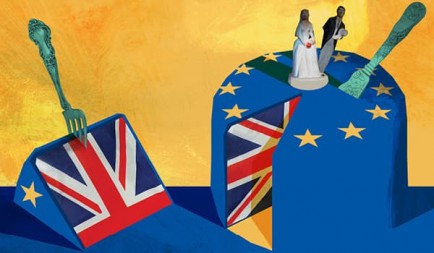
Long-term expats feel both European and British… and should be able to have their say on events connected to both. Copyright: Jonathan McHugh
The British High Court in London yesterday heard the legal challenge put forward by two committed British expats to have the so-called ‘15-year rule’ – which denies Brits who have lived away from the UK for 15 years or more the right to vote in general elections and the forthcoming EU Referendum – abolished…
The case was brought by 94-year-old war veteran Harry Shindler, who lives in Italy, and British lawyer Jacquelyn MacLennan, who resides in Belgium. Central to the case is the claim that, by denying British citizens who have lived away from the UK for 15 years the right to vote, the UK government is violating their human rights.
If the case is successful then the In/Out EU Referendum vote scheduled for June 23 could be pushed back as up to 2 million newly-eligible expat voters are added to the electoral register.
Somewhat ironically, it is under European law that Shindler was able to bring the case to the High Court – something that would be impossible if the UK was already outside of the EU.
The vote in June will “have a very real impact” on the lives of not just Shindler and MacLennan, but millions of Brits who have a vested interest in the UK’s position on Europe, but are currently ineligible to vote, argues a spokesperson for the London-based law firm Leigh Day, which is representing the expats.
“Lawyers for the claimants will argue that excluding British citizens who have lived elsewhere in the EU for more than 15 years acts as a disincentive from, and a penalty for, their exercising their free movement rights,” the spokesperson added.
“It also prevents them from participating in a democratic process, the result of which might bring to an end the very EU law rights on which they rely and base their working lives.”
Mr Shindler has called the legal challenge “one of the most important things I have ever done”, and stressed: “What we are doing here is re-establishing democracy. If we can do that for two million people, that is quite something.”
During the 2015 election campaign, Prime Minister David Cameron promised to end the 15-year rule should he win re-election, which he duly did. However, the Conservative manifesto stated that such a rule change would come in after the EU Referendum, and the QC representing the government – James Eadie – has made it clear that the Tories wish to uphold this position.
Their chief argument is that the admission of 1-2 million extra voters at this stage would be impossible to implement “without calling into question the date of the EU Referendum”, and that a “lengthy process of development, testing and delivery” of registration and technical procedures would be required.
In short, it would seem, the government simply does not want to deal with the red tape such a law change would require. However, Mr Shindler will not be cowed. “There are examples of legislation being rushed through in one day,” he said. “So this could require the date of the referendum to be changed, but I hope that won’t be the case.”
In court, Aidan O’Neill QC, who is representing the claimants, said: “It’s not that they have left or given up on the UK, but every day of their daily lives they are relying on the fact of their British citizenship and membership of the UK in the EU.”
VIVA will report the outcome of the High Court’s decision as soon as it is made.
 en
en



 Vlaams-Nederlands
Vlaams-Nederlands
1 Comment
Leave a Comment
DISCLAIMER
The opinions and comments expressed by contributors to this Blog are theirs alone and do not necessarily reflect the views of VIVA Homes Under the Sun Ltd, any of its associated companies, or employees; nor is VIVA to be held responsible or accountable for the accuracy of any of the information supplied.
HenryApril 30, 2016 at 4:27 pm
You all made the decision to leave Great Britain and live abroad, if you have been living abroad more than 15 years, then what do you think gives you the right to any vote in which a major decision is to be made, you gave up that right when you left this country.
Have you got something to say?